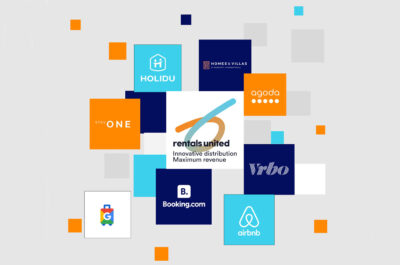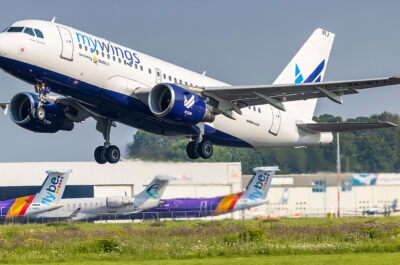In this article, we will look at how technology is changing the landscape of accounting services within CPA firms,
The modern landscape of CPA businesses is undergoing a dramatic shift, with technology rising as a driving force in the domain of bookkeeping services. Traditional ledger books and data entry procedures are no longer in use. Instead, we are living in a time where artificial intelligence, robotics, and cloud-based technologies are transforming the way CPA businesses manage financial data. In this article, we will look at how technology is changing the landscape of accounting services within CPA firms, allowing for improved efficiency, accuracy, and customer interaction.
Traditional vs. modern bookkeeping
Traditional bookkeeping in CPA firms relied on manual ledger entries and paper-based data. This method was time-consuming, prone to errors, and needed more immediate feedback. Modern bookkeeping, on the other hand, makes use of technologies such as AI, robotics, and cloud-based platforms. These advancements significantly minimize manual labor, resulting in faster processing of data, fewer errors, and improved security. Modern technologies also provide real-time data access, facilitating client cooperation and offering vital insights for informed choices. The transition from traditional to modern bookkeeping is a watershed moment, allowing CPA companies to provide more efficient, precise, and client-centric services.
Role of technology-driven transformations
Technology-driven developments play a diverse and vital role in Certified Public Accounting (CPA) businesses. These are the innovations:
Enhance efficiency
Technology plays a vital role in increasing efficiency in CPA bookkeeping services. Automation and artificial intelligence (AI) improve CPA firm bookkeeping services by minimizing the time necessary for manual processes. It not only increases productivity but also reduces errors, allowing CPA companies to handle larger assignments and service their clients with greater effectiveness.
Improve accuracy
Improving accuracy is a paramount goal in modern CPA firm bookkeeping services. Automation and AI-driven systems minimize human error by meticulously handling data entry, categorization, and reconciliation. These technologies employ advanced algorithms to cross-check and validate financial information, ensuring precision in every transaction. By leveraging technology’s capabilities, CPA firms can confidently provide clients with accurate financial records and analysis, reinforcing their reputation for reliability and competence.
Enable real-time insights
A fundamental benefit of technology in modern CPA firm bookkeeping services is the ability to provide real-time information. Cloud-based systems and data analytics tools enable real-time access to financial data, supporting timely decision-making. This real-time feature enables both CPAs and clients to monitor financial results, identify trends, and respond quickly to changes. It improves agility by allowing firms to make sound strategic choices quickly, whether for budget modifications, potential investments, or risk mitigation, resulting in improved financial results and competitive benefits.
Enhance client engagement
Client interaction in the current CPA company bookkeeping services is considerably improved by technology. Clients can access their financial information and report in real time via online channels and cloud-based platforms, increasing openness and trust. Clients may take an active role in managing their funds through self-service choices, giving them more control and visibility. Individual tastes are catered for with flexible dashboards and interactive reporting features, increasing the entire experience. This increased degree of interaction strengthens the client-CPA relationship, resulting in greater satisfaction, loyalty, and joint success in meeting financial objectives.
Ensure compliance
Compliance is a vital component of modern CPA practices. Technology aids in this effort by offering real-time monitoring and automated verification for regulatory compliance. Changes in tax laws and financial rules can be tracked in real-time thanks to advanced software applications and cloud-based platforms. Businesses outsource bookkeeping services to stay compliant, reducing possible hazards and penalties. Furthermore, these systems’ audit trail and data integrity capabilities increase compliance initiatives, allowing CPA firms to meet regulatory standards. Consider Sleek for expert bookkeeping services in Australia, ensuring efficient and reliable accounting solutions.
Empower CPAs
CPAs are empowered by modern technology, which has transformed their roles from data entry and manual chores to strategic advisors. Automation and artificial intelligence (AI) manage basic, time-consuming operations, freeing up CPAs to focus on high-value activities such as data analysis financial plan development, and offering valuable insights to customers. Embracing technology gives CPAs the tools and abilities they need to survive in a fast-changing world, assuring their ongoing relevance and effectiveness in providing competent financial advice.
Conclusion
In a nutshell, the incorporation of technology into Certified Public Accountant (CPA) business bookkeeping services has ushered in a renewed era of efficiency, precision, and client-centricity. Automation, artificial intelligence, and cloud-based platforms have streamlined processes, provided real-time data, and encouraged greater client interaction. This transformation not only improves efficiency and compliance but also reshapes CPAs’ roles, emphasizing strategic advisory. As the digital landscape evolves, CPA firms must embrace technology to ensure they are prepared to navigate a changing financial world and provide great services to their clients.






















































































































































